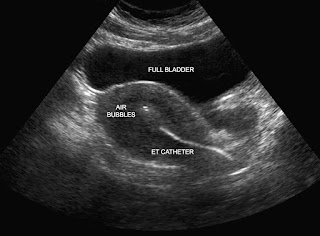Failing an IVF cycle can be heartbreaking. It's often your worst nightmare coming true. You've gathered all that money, taken that big risk, taken all those shots, and done everything possible in order to get pregnant, and blindly followed all the advice given. No, you have not complained even once. And the doctor was so hopeful and optimistic and yet the cycle failed and you feel you've let everyone down - that your body doesn't work properly. That the embryo didn't implant, that you must be cursed, that your fate is bad. And that if that cycle fail, you're never going to get pregnant. After if IVF fails, then what else is left for the future?
You you need to remember that the pregnancy rate is never going to be a hundred percent , and that in fact, the odds of failing in a single IVF cycle are actually much more than the odds of succeeding in a single IVF cycle. But over time - over multiple cycles, the odds are then stacked in your favor. The important thing is to analyze the failed cycle, so you can learn from it. so you can learn what to do differently the next time.
Now this might seem quite daunting for a patient. What do I understand about IVF? I'm not a doctor. I do everything my doctor tells me to do. My doctor was very hopeful and he was sure I was going to get pregnant. And yet it failed. Is there any hope for me at all?
Part of the problem is sometimes patients aren't even sure that they can trust the doctor , because after the cycle fails, the doctor comes up with all kinds of spurious reasons and explanations for, "Oh, maybe the embryo wasn't good". "Maybe your uterus wasn't good. "Maybe your uterus rejected the embryo". "Maybe you have some immune antibodies". "Maybe we need to do some additional tests" - all kinds of excuses . And you wonder why didn't the doctor tell you all this before doing the embryo transfer rather than after the cycle fail. So your confidence levels, not only in yourself, but in the doctor also, are going to go down.
You need to understand that IVF isn't really as complicated as most doctors make it out to be after all, what are the four things which you can change in an IVF cycle. That's all you need to figure out.
There are eggs. There are sperms. There is the uterus. And finally there is the doctor. So these are the only four levers, which you can change. Now, if you have a top quality blastocyst ( and the doctor has given you a photograph of this), the transfer was smooth, and your endometrium was good, then the reality is there's no need to change anything. It's just a question of repeating the cycle until it works. And of course, if you have a frozen embryo then repeating it is much easier because the cost is much less and you don't need to take injections. You need to come to the clinic just 2 or 3 times and the doctor puts your embryos back and you have an extremely good chance of getting pregnant - maybe in the second or the third cycle, provided you don't give up and get disheartened.
But suppose the cycle didn't go well, then what do you need to analyze ? Did you get poor quality embryos? Because your eggs weren't very good ? Was this because your your ovarian response wasn't good because you have poor ovarian reserve ? Or did the eggs not fertilize well ? Or did the embryos started fragmenting from day two or day three.
Or was it a problem with the sperm? Did you have total failure of fertilization? If you did ICSI (Intra Cytoplasmic Sperm Injection). maybe not enough of the eggs fertilized properly perhaps because the embryologist just didn't do a very good job.
Analysing uterine receptivity is not very hard, because if you can see a tri-laminar thick endometrium on an ultrasound scan, this usually means the uterus is receptive.
Of course, when a cycle fails, doctors want to change something, and patients want them to change something too . And the easiest thing to change is the uterus because the commonest reason a doctor gives is - Your uterus rejected the embryo, which is why it didn't implant.
Even though this is a lie, this is something which patients are very likely to believe. This is partly because they have low self-esteem as a result of their infertility, and they know their body doesn't work properly. And then when, in spite of the fact that the doctor made an embryo, put it back, and yet they didn't get pregnant , this means obviously their uterus is flawed ! It rejected the embryo and they need to change the uterus and do surrogacy. But the reality is that most IVF cycles which fail aren't because of problems with the uterus because the uterus is usually passive. The problem is often with the eggs, rather than the uterus.
And finally, the fourth variable is the doctor. If you feel the quality of care, wasn't good; the doctor didn't spend enough time with you; the doctor didn't bother to answer your questions.; was was not open, and didn't give you photos of your embryos ; or you never got a chance to see the doctor because he was busy in some other clinic and you had to talk to assistants every time. This means it's time for you to consider changing your doctor. And if you're not sure what to do, please reach out to us.
Need help in getting pregnant ? Please send me your medical details by filling in the form at www.drmalpani.com/free-second-opinion so that I can guide you !



